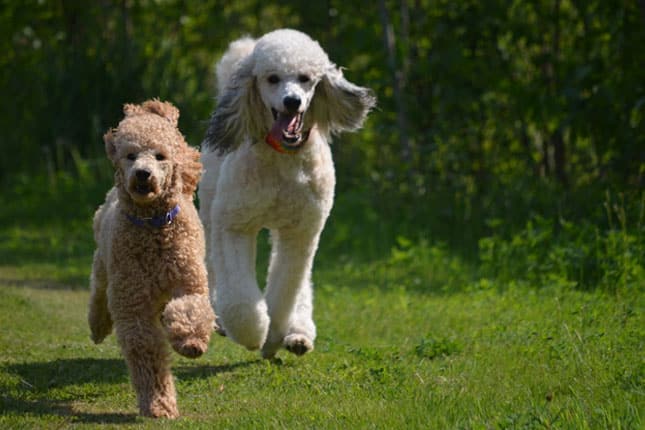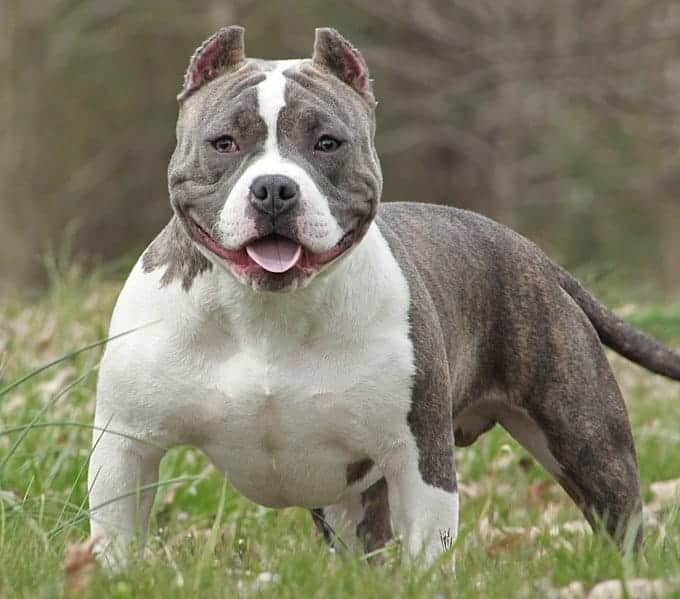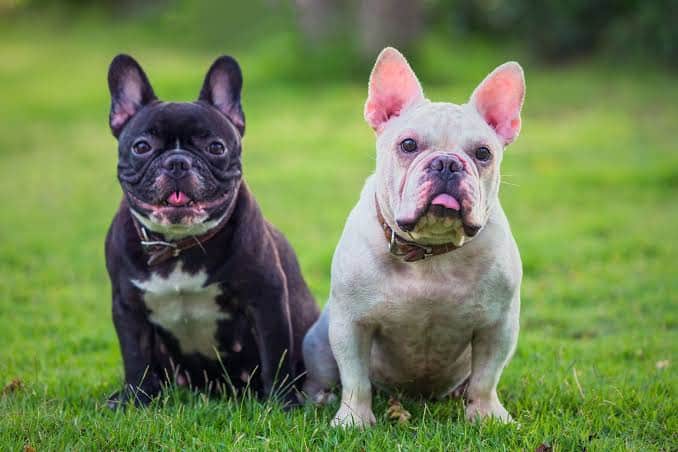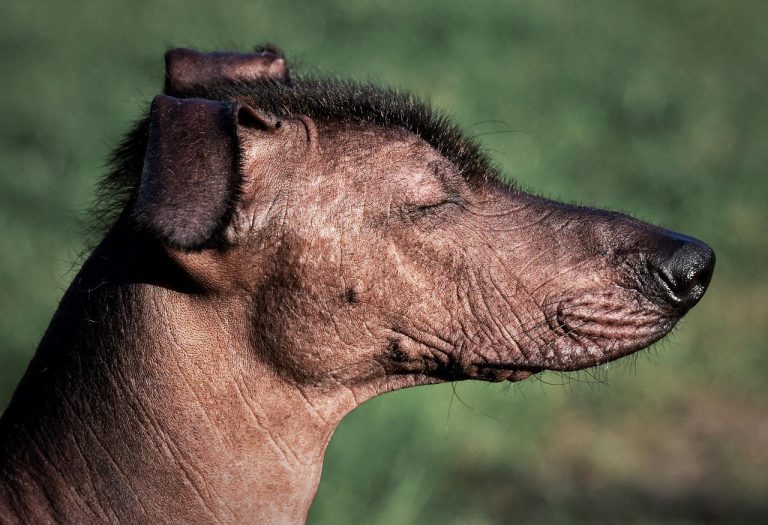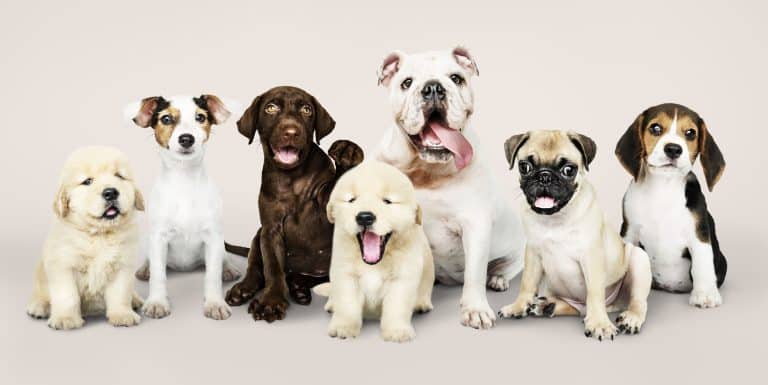Baby Poodle: Characteristics, Personality, Price, and Health Guide
The Poodles, a blend of beauty and brain, are a popular choice among families when adopting a family dog. Poodles, known for their elegant posture, clever wit, and intelligence, have won our hearts.
The breed is highly recognized, but there is little awareness about the care, grooming, and growing up of a baby Poodle. Welcoming a Poodle in your home requires a deep understanding of growth patterns and care for the breed.
If you are one such pet parent who is about to bring home a baby Poodle, here is everything you must know about Poodles.
Baby & Full Grown: Height & Weight Comparison, Lifespan
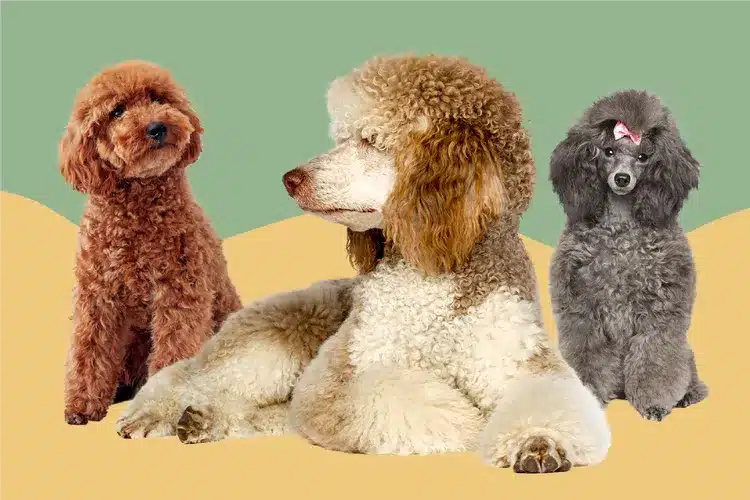
Before we briefly discuss how much of a difference there is in the weight and height between baby and full-grown poodles, here’s one thing you must know. (Note that it is an estimation.)
Every poodle baby will be unique, so there may be slight variations in the height and weight of your pet and the number we mention here. The difference will not be that significant, but if you find it concerning, it is advised that you should consult with your veterinary doctor.
1. Weight and Height
Different varieties of baby poodles will vary in size. The average weight, including all the variants, can weigh anywhere between 4 – 70 pounds.
Here’s a table for a comparison of the weight of a poodle as they grow.
| Age | Female Poodle Weight (lbs) | Male Poodle Weight (lbs) |
| 1 Months | 4-7 | 5-9 |
| 2 Months | 11-16 | 16-20 |
| 3 Months | 20-24 | 22-26 |
| 4 Months | 24-28 | 30-35 |
| 5 Months | 26-30 | 35-41 |
| 6 Months | 28-34 | 41-48 |
| 7 Months | 30-36 | 48-55 |
| 8 Months | 32-38 | 50-57 |
| 9 Months | 34-40 | 52-61 |
| 10 Months | 36-44 | 55-63 |
| 11 Months | 38-46 | 57-68 |
| 1 Year | 40-50 | 60-70 |
| 2 Years | 40-50 | 60-70 |
With this, let us also take a look at the height of poodles as they grow.
| Poodle Age | Height (inches) |
| 2 Months | 12-13 |
| 3 Months | 14-15 |
| 4 Months | 18-19 |
| 6 Months | 18-22 |
| 24 Months | 18-24 |
The weight, size, and height depend mainly on baby poodle breeds. To get precise data for how much your baby poodle puppy might grow, it is best to rely on information provided by your breeder. The breeder of your baby poodle has a history of its parents that helps in determining the estimated growth of your dog.
2. The Lifespan of a Poodle
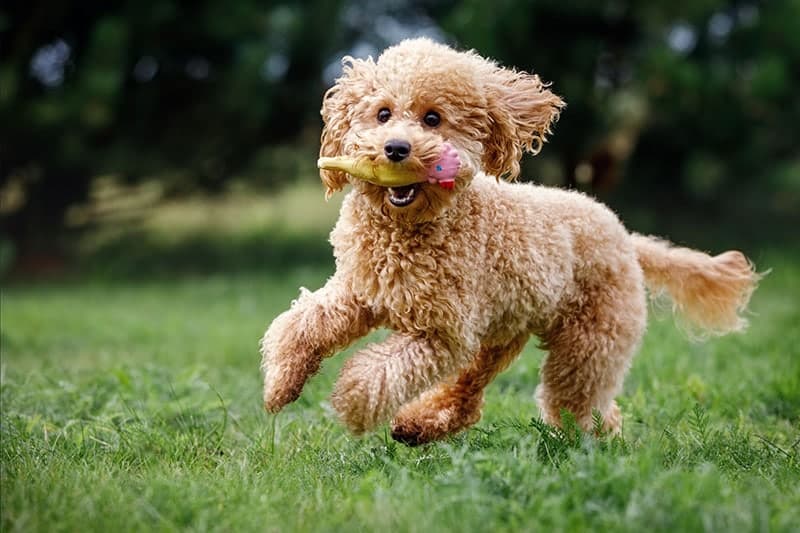
How long a baby poodle will live depends on his breed. However, there’s not much of a difference in the lifespan of different varieties. On average, the lifespan of poodles is 12-15 years.
If we consider the varieties individually, a miniature poodle lives for 14-17 years, while the life expectancy of a toy poodle is 6 years. Several studies suggest that the lifespan of a poodle dog is inversely related to its size. This means smaller-sized dogs tend to live longer.
The research suggests the smaller varieties live longer because of their high metabolic rates. This is because the smaller dogs have reduced levels of IGF-1 (Insulin Growth Factor-1), which has a link to more resistance to oxidative stress (which causes senescence in living beings).
This is the average weight of poodles, but in reality, the weight and height will vary greatly depending on the breed you have.
3. Lifecycle of Baby Poodle Breeds
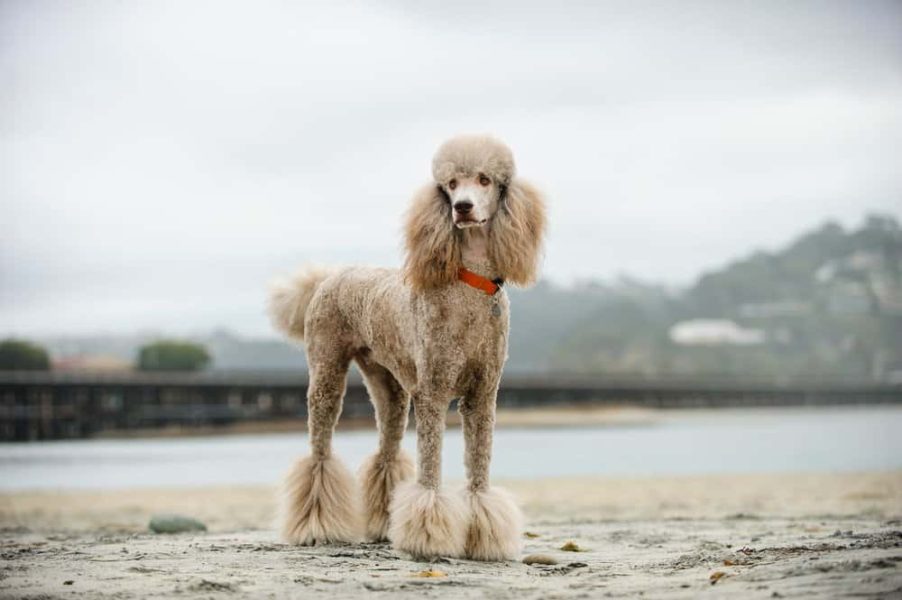
Like every other dog breed, poodle puppies will have a lifecycle including puppy stages, adolescence, adulthood, and seniority. A poodle dog will experience puppyhood for up to 1-2 years.
Puppyhood for a toy poodle dog will last for a year; for a miniature poodle dog, it will be 18 months; and for a standard poodle dog, the duration of puppyhood will be 2 years.
The transition of poodles to adolescence will resonate with their growth, calmer nature, and energetic behavior. An adolescent poodle dog will have too much energy.
The Toy and Miniature variety of Poodles takes a year to reach adulthood. The same for a Standard variety is 2 years. When a Poodle dog enters his senior life, he is prone to health conditions.
The Toy and Miniature breeds, when turning 8-9 years old, are considered to be in the category of senior dogs. The same goes for Standard Poodles when they turn 7 years old.
What is the Baby Poodle’s Personality Like?
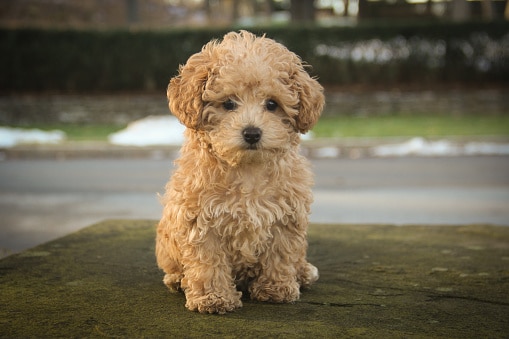
Poodles, as a breed of dogs, are considered very notorious. Well known for their intelligence and ease of training, they are one of the compassionate breeds of dogs. They are lively, loyal, and fun-loving dogs.
Poodles are mostly highly energetic and high-spirited. They are affectionate and protective of their family members. But they also love being the center of attention. If their training involves socialization from an early age, poodle dogs are friendly to other humans and animals.
They can be stubborn at times because they are more intelligent than the other breeds. Physical activity and mental stimulation are very important for this breed.
This breed is needed as they are hunting dogs. Poodle dogs are generally wary of strangers, which means your baby poodle might bark at visitors. If you are a new pet parent or even a new baby poodle dog, be prepared to train this part of your dog’s personality.
Baby Poodle 101: Size, Characteristics & Health Guide
A poodle is an impressive breed that is intelligent, clever, proud, and elegant. The main characteristics of this breed include adaptability, friendliness, and trainability.
An Overview of The Breed
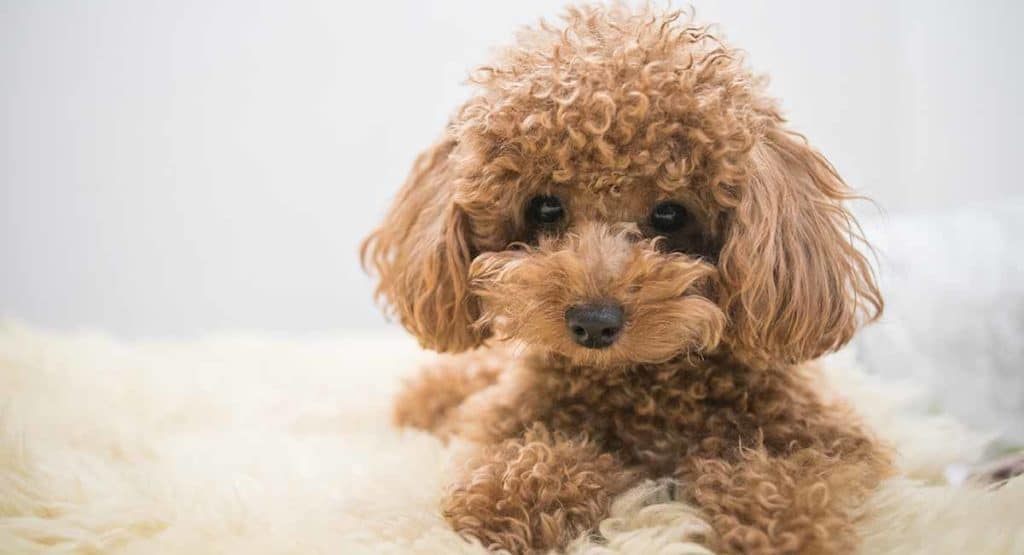
Very popular for their stature and iconic elegance, poodle dogs are amongst one of the most intelligent dog species. The breed is said to have originated in France. At the same time, it is not very accurate to trace their origin. However, the French aristocracy associated with this breed suggests its origin in France.
The close ancestors of a baby poodle are German Barbet and Hungarian Water Hound. The name of the species “Poodle” has a German origin (“pudel” or “puddle”). The species has served for a long time as water dogs.
In ancient times, it was known that dogs helped people to retrieve ducks and other prey. The grooming, which now is more popular for the overall looks of the dogs, served a function. It helped the dogs to make mobility easier in water. At the same time, the fur protected the vital organs from getting too cold.
Baby Poodle Breeds
Poodle dogs have three varieties: the Toy, the Standard, and the Miniature. Among the three baby Poodle breeds (varieties), the Standard is considered to be the oldest of the varieties.
1. Toy Baby Poodle Breed

It is the smallest of the Poodle breed of dogs. It might be the smallest, but it has a playful personality and makes a great family pet. Toy Poodles make a great choice for homes with people with allergies. This is because they shed not too much of their coat. Because the Toy Poodle dogs are small, feeding them 3-4 times consistently is ideal.
2. Miniature Baby Poodle Breed

Like the other Poodle varieties (the Toy and the Standard), the Miniature Poodle dogs are intelligent and active as well. The Miniature Poodle puppies will require 3-4 meals daily till they turn 1 year old. Afterward, the number of meals can be reduced to twice a day.
3. Standard Baby Poodle Breed
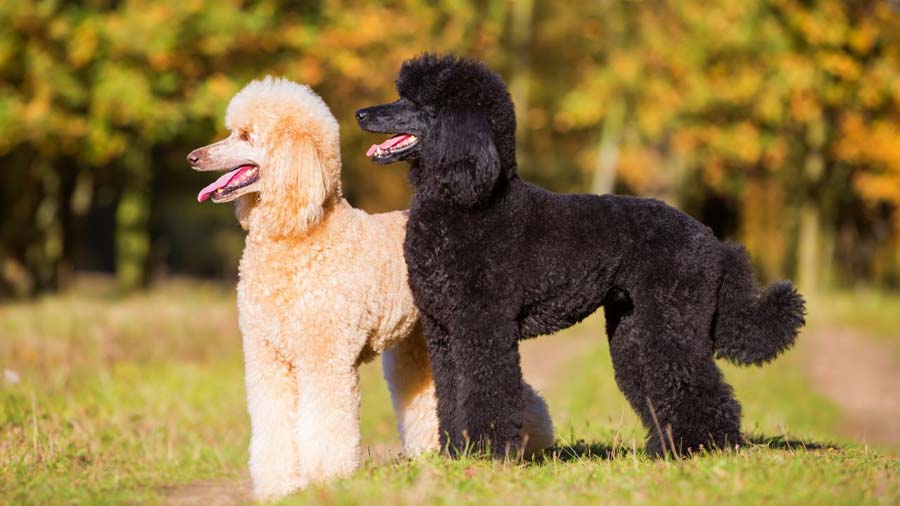
The Standard Poodle dog is the largest among the Poodle variety, with an average of 18-24 inches (height) in height and 50-70 pounds (weight).
When Does a Baby Poodle Fully Grow?
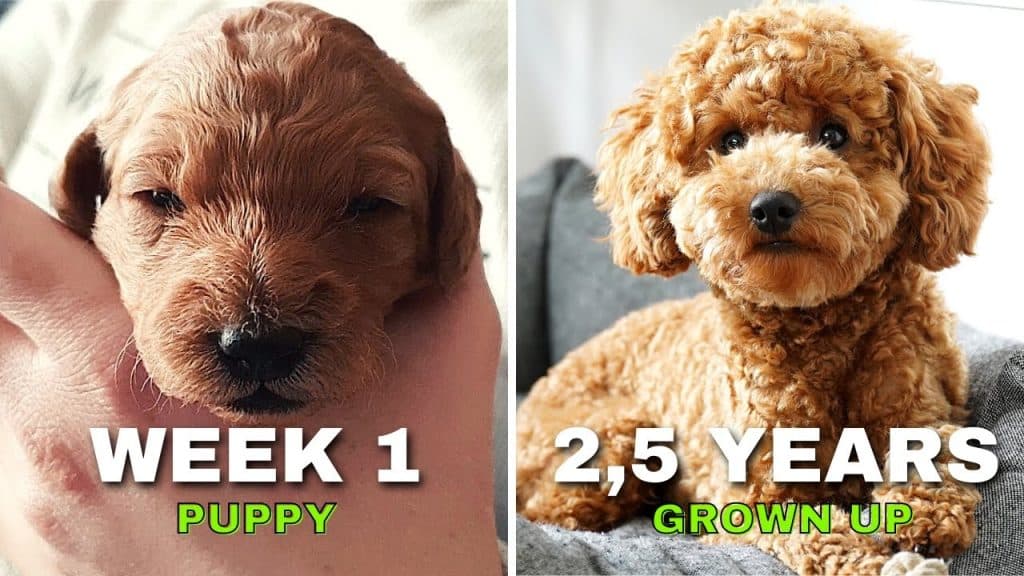
The baby poodle puppies are known to become fully grown adults when they turn 2 years old. Determining the adulthood of your baby poodle puppies using age is relative. An adult poodle dog will have emotional signs of growing up, like a calmer nature. The baby poodle puppies are known to gain emotional maturity at the age of 18 months. While some puppies might reach their adulthood as early as they turn 18 months, some might require complete years to become adult dogs.
1. Poodle Training
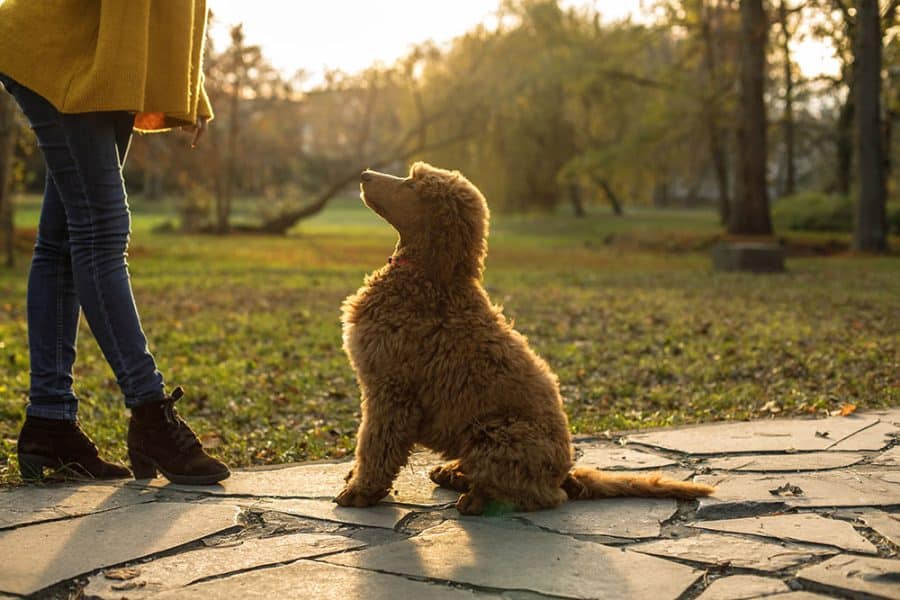
The history of Poodle dogs has been associated with working with humans. This corresponds to the fact that training the Poodle dogs is not a tough task. This is because they are intelligent as a species. They are included in one of the most trainable breeds.
The dogs from this breed will be responsive to your training sessions, impressing you with their agility and obedience. They pick up new commands and tricks very fast. When training the Poodles, make sure it is consistent. The training must also include the socialization of the dogs from a young age.
2. Exercise for Poodles
A daily routine for any Poodle is necessary. You must involve your dogs in exercising for at least an hour and walking. Swimming and games for them are two preferred ways for pet owners of Poodles.
Baby Poodle Pros & Cons: What to Consider Before Adopting
Before you plan to include baby Poodle breeds in your family, there are several things you must consider. The first thing you must know about the breed is its three varieties, i.e., Standard, Miniature, and Toy.
Another important point to consider is their friendly nature. If the training sessions at an early age include socialization of the puppies, they make one of the best breeds as family dogs.
To help you make a well-informed decision about bringing a Poodle to your home, here are both the pros and cons.
Pros
- The Poodle babies are furry bundles of love you can not resist bringing to your home. The varieties in the breed itself allow you to choose a size for your future pet dog. To train these dogs is extremely easy. Considered to be one of the smartest dogs, this intelligent breed of dog picks up commands very fast.
- Baby Poodle makes an excellent choice as a family dog. With their ease of trainability, the dogs pose no difficulty in training sessions. The dogs from this breed are safe to live with children. With this, they also make great service or therapy dogs. Relatively, these dogs also have a longer life expectancy.
- If you or your family member is allergic to dog hair, Poodles make a great choice for your home because of their hypoallergenic fur coat. This is because there’s hardly any shedding of their fur. And with fur, you get to give a variety of trims to your dog, choosing the style from so many options.
- Adding to that, this breed comes in various colors, where the most famous colors for the dogs are baby Poodle black and white. Overall, their playfulness, trainability, affectionate nature, and intelligence make them a great choice as a family dog.
Cons
- Owning a Poodle is all fun until you know what the challenges with the breed are. To begin with the cons, the first on the list is their higher costs. It is surely a popular breed, but they are comparatively expensive.
- Expect to spend at least 3,000 USD to purchase a dog from this breed if you buy it from a registered breeder. Some sites may show lower prices, but registered breeders are preferred because they include pre-breeding tests.
- Poodles are elegant, but they will require a lot of grooming. Trimming is frequently needed for the Poodles. And it is not just regular trimming; you will also have to brush their hair daily. If you have no domestic help and have a busy schedule, it is wise to go for other dog breeds.
- If the dogs lack socialization when they are young, they may become hypersensitive (like frightened or startled) as they turn into adults. Another disadvantage if you have a packed schedule is that they require daily exercise. With this, they are also prone to conditions more frequent in their breed, especially genetic health problems.
Baby Poodle: Facts and Price
There is so much we have talked about baby Poodle dogs, but here, let us know what are some great facts about this breed.
- The dogs are very intelligent, one of the smartest dogs in the world.
- Poodles are exceptional swimmers. The webbed feet and their furry coat of poodles facilitate swimming.
- The history of Poodles is associated with humans as hunting companions. It is said that they were water hunters for humans.
- Poodles are popular for their elegant appearance. But their looks are more than haircuts. The body parts with shaved-off hair helped the dogs to swim in the early days, while the areas of clips with fur protected them from being too cold.
- The hair of this dog variety continues to grow like humans. This is one of the reasons Poodles need frequent grooming and trimming.
The price you might have to pay for a baby Poodle dog can range anywhere between 600 to 2000 USD. On average, it will cost you around 1,000 US dollars to bring a baby Poodle to your home. When purchasing any dog breed, remember to only deal with registered and reputed breeders.
Most Common Baby Poodle Health Issues
- The most important concern with baby poodle puppies is their susceptibility to genetic health conditions (like Addison’s disease, eye diseases, Hip Dysplasia, Epilepsy, Hypothyroidism, etc.).
- Early screenings of your pet help in monitoring and controlling genetic complications. Apart from genetic health troubles, this dog breed is also susceptible to bloating (trapping of gas in the stomach, which affects the dogs’ digestion). Ear disorders are another concern if you are a parent to baby Poodle puppies.
- Poodles are also susceptible to developing conditions with dental and mouth issues. Gingivitis is a common problem with baby Poodle breeds caused by the accumulation of food, bacteria, and minerals on the gum line. This causes problems like periodontal diseases for the baby Poodle puppies.
- It can sometimes be more dangerous than a dental problem if the infection spreads to other body parts like the liver and kidney. The solution to protect your baby Poodle puppies is to have regular dental routines with veterinarians.
- For your pet to stay healthy, you must pay regular visits to the vet. The regular health screenings will include X-rays, dental cleaning, and blood work to provide the best medical care to your pet.
Now let us briefly discuss some of the very common health-related considerations for Poodle dogs.
1. Neutering of Poodle Dogs

Neutering is a process where the reproductive organs of male pets are surgically removed (known as spaying in female pets). Neutering or spaying is an important aspect of health issues that must be dealt with with utmost care. Six months is the ideal time for the Toy and Miniature varieties, while for the Standard variety, the doctors suggest waiting for a month.
Neutering too early hinders the normal growth of dogs. This is because reproductive hormones influence the development of bones and joints. The main reason for neutering pets is the prevention of unwanted offspring. But it also had additional health benefits like reduced chances of cancer and controlling their aggression.
2. Ensuring Your Baby Poodle Puppies Are Healthy
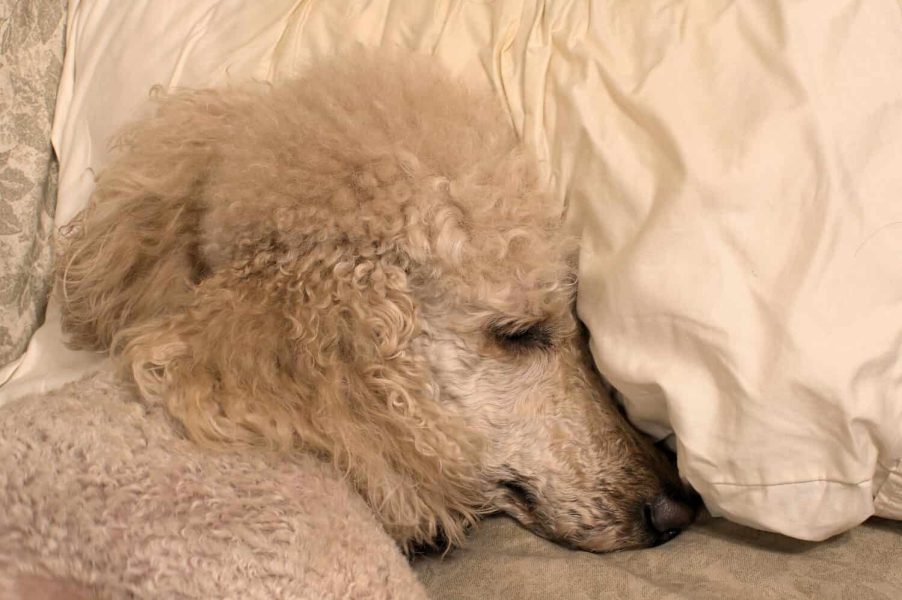
The lifestyle choices you opt for will greatly impact the overall health of your dogs. Because a poodle dog is one of the hunting breeds, daily exercise is vital for the healthy living of your dog. To cover up for their daily exercise needs, follow a daily routine of walks, jogging, or playing.
Games like fetch work perfectly to maintain the fitness of your dogs and keep them lively. Adding to this, swimming is another exercise that does wonders. The coats of your Poodle babies might not seem that important, but the full coats can weigh them down.
A regular trimming of their coat is recommended. With regular trimming, the dogs will require daily grooming, including brushing and combing, which you can easily do at home. With this, professional grooming is required in a gap of 6-7 weeks.
A healthy diet is very important for extending the lifecycle of your Poodle puppies. The diet must include high-protein and Calcium-rich food items. Make sure the food you give to your Poodle dogs has no artificial ingredients. With Standard Poodles, ensure that the dog does not drink water at mealtimes as it causes bloating in their system.
Stress is another important factor to note for keeping your dog healthy. During the growing phase and training of the baby Poodles, give the dog exposure to new people, places, and situations. There are recorded fluctuations when Poodle puppies are stressed.
Conclusion
The dogs of the breed Poodle are lively, energetic, and exceptionally intelligent. Poodle dogs are well-known for their adaptability, trainability, and friendliness. There are three varieties of Poodles, i.e. Toy Poodle, Miniature Poodle, and Standard Poodle.
A baby Poodle transforms into an adult in about two years. The period for growing up varies with individual varieties.
Before you purchase a Poodle, it is necessary to understand the right choice of dog depending on their individual needs. Opt for a Poodle if you can bear its expenses, make time for its grooming, and schedule regular training sessions.
Let us know in the comments what challenges you faced as your Poodle was growing up!

